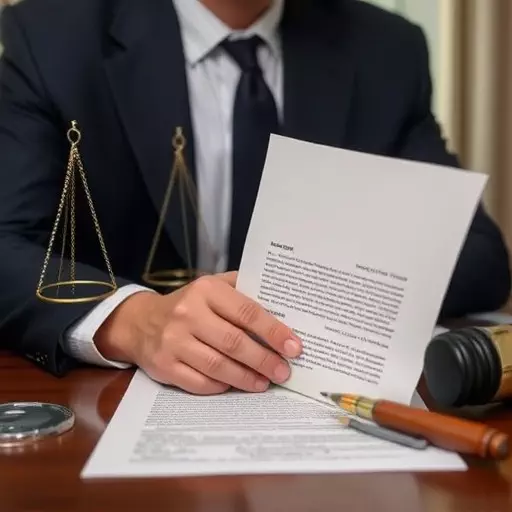Advanced Healthcare Directives (AHDs) in California are vital for expressing medical preferences and avoiding probate disputes, especially in complex family structures. When AHDs are contested, families should consult a Probate Litigation Lawyer in Palo Alto, California, who can navigate the process involving document validity, mental capacity, and potential undue influence. These legal experts guide clients through the intricate probate litigation process, ensuring compliance with California law regarding estate planning and end-of-life care. They analyze medical records and legal documents to build strong cases, achieving favorable outcomes while respecting loved ones' wishes. When disputes arise over AHDs or wills, engaging an experienced probate litigation lawyer in Palo Alto, California significantly improves chances of success in the complex probate litigation process.
In today’s complex healthcare landscape, advanced directives are crucial for ensuring patient autonomy. However, disputes over these legal documents can arise, leading to intricate probate litigation. This article guides you through the intricacies of the probate litigation process in Palo Alto, California, highlighting the role of a specialized probate litigation lawyer. We’ll explore common grounds for contesting a will and provide a step-by-step guide to navigating this challenging yet essential legal journey.
- Understanding Advanced Healthcare Directives and Their Legal Implications
- The Role of a Probate Litigation Lawyer in Palo Alto, California
- Navigating the Probate Litigation Process: Step-by-Step Guide
- Contesting a Will: Common Grounds and Legal Strategies
Understanding Advanced Healthcare Directives and Their Legal Implications

Advanced Healthcare Directives (AHDs) are legal documents that allow individuals to express their wishes regarding medical treatment and care in the event they become incapable of making decisions for themselves. These directives are particularly important as they can help prevent probate litigation, especially among families with complex assets or contentious relationships. In California, where a significant number of residents opt for advanced healthcare planning, understanding the legal implications is crucial.
When disputes arise over an AHD, individuals or their families may need to consult a probate litigation lawyer in Palo Alto, California. The probate litigation process involves examining the validity and authenticity of the directive, assessing mental capacity at the time of signing, and determining if any alterations were made under undue influence or fraud. Contesting a will or AHD can be complex, but it’s essential to protect an individual’s rights and ensure their wishes are honored according to California law.
The Role of a Probate Litigation Lawyer in Palo Alto, California

In Palo Alto, California, the role of a Probate Litigation Lawyer is indispensable when navigating complex advanced healthcare directive disputes. These legal professionals are experts in the probate litigation process, guiding clients through the intricate web of contesting a will or challenging healthcare decisions. They possess an in-depth understanding of state laws and regulations pertaining to estate planning and end-of-life care, ensuring that all legal avenues are explored to protect the rights and wishes of their clients.
A Probate Litigation Lawyer in Palo Alto plays a crucial role in resolving disputes that often arise when advanced healthcare directives are involved. They meticulously examine medical records, witness statements, and legal documents to build a robust case for their client. Whether it’s contesting the validity of a will or advocating for specific healthcare decisions outlined in an advance directive, these lawyers employ strategic legal arguments and negotiations to achieve favorable outcomes. Their expertise helps families find clarity and closure during emotionally charged times, ensuring that the wishes of their loved ones are respected.
Navigating the Probate Litigation Process: Step-by-Step Guide

Navigating the Probate Litigation Process can be complex and emotionally charged. If you’re considering contesting a will or involved in an advanced healthcare directive dispute, understanding each step is crucial. The process begins with identifying the grounds for contesting the will, which may include lack of capacity, undue influence, or fraud. Once determined, the next step involves filing a petition in court, typically with the assistance of a probate litigation lawyer in Palo Alto, California. This document outlines the specific claims and requests for relief.
After filing, the court will issue a citation to the personal representative or executor, requiring them to appear and defend the will. During this phase, both parties gather evidence, including witness statements, financial records, and medical reports. The case may proceed to trial where a judge reviews the evidence and testimony before making a ruling. It’s important to have a comprehensive understanding of each step to ensure the best possible outcome in probate litigation. Engaging an experienced probate litigation lawyer in Palo Alto, California, can significantly enhance your chances of navigating this process successfully.
Contesting a Will: Common Grounds and Legal Strategies

When disputes arise over an advanced healthcare directive or will, individuals and their families often turn to a probate litigation lawyer in Palo Alto, California, for guidance. The probate litigation process involves complex legal procedures designed to resolve conflicts related to the validity and interpretation of estate documents. Common grounds for contesting a will include allegations of undue influence, fraud, or mental incapacity at the time the document was signed.
Legal strategies employed by a skilled probate litigation lawyer can range from challenging the authenticity of signatures to presenting evidence that demonstrates a testator lacked the mental capacity to understand the nature and effect of their decisions. These cases often require meticulous investigation, including gathering medical records, witness testimonies, and expert opinions, to build a strong case. Understanding the specific circumstances and applicable laws is crucial in navigating the probate litigation process effectively.


